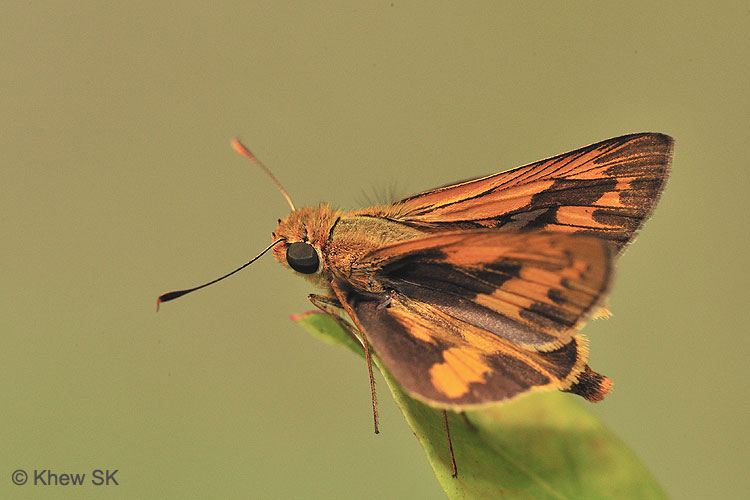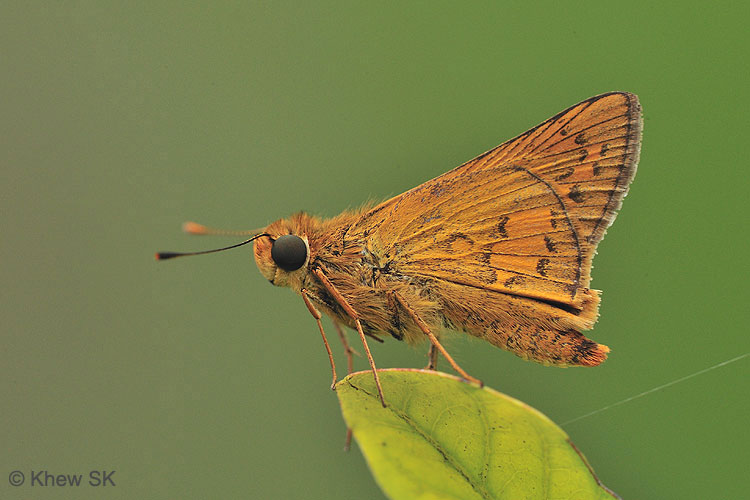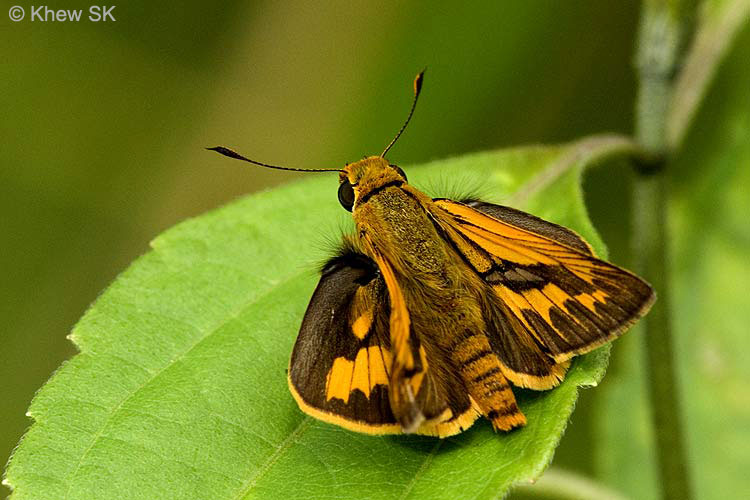Telicota colon stinga
Common Palm Dart
| Family: | Hesperiidae |
| Subfamily: | Hesperiinae |
| Genus | Telicota |
| Species: | colon |
| Subspecies: | stinga |
| Common Name: | Common Palm Dart |
| Wingspan: | 30 mm |
| Life History: | incomplete |
| Extant in countries: | •Singapore |
Description
The Common Palm Dart is a relataively large skipper, attaining a wingspan of up to 30mm. The yellow colour of the post-discal band on the forewing is continued along the veins towards the termen. The bluish-grey stigma on the forewing in the male is more conspicuous that in the other species.
Habitat & Habits
It is another rapid flyer and males are often seen 'dogfighting' in the early hours of the morning, and then resting on leaves and grass blades in the usual Skipper pose.
Other Observations
To be detailed.
Early Stages
To be detailed.
Further Reading
To be detailed.






